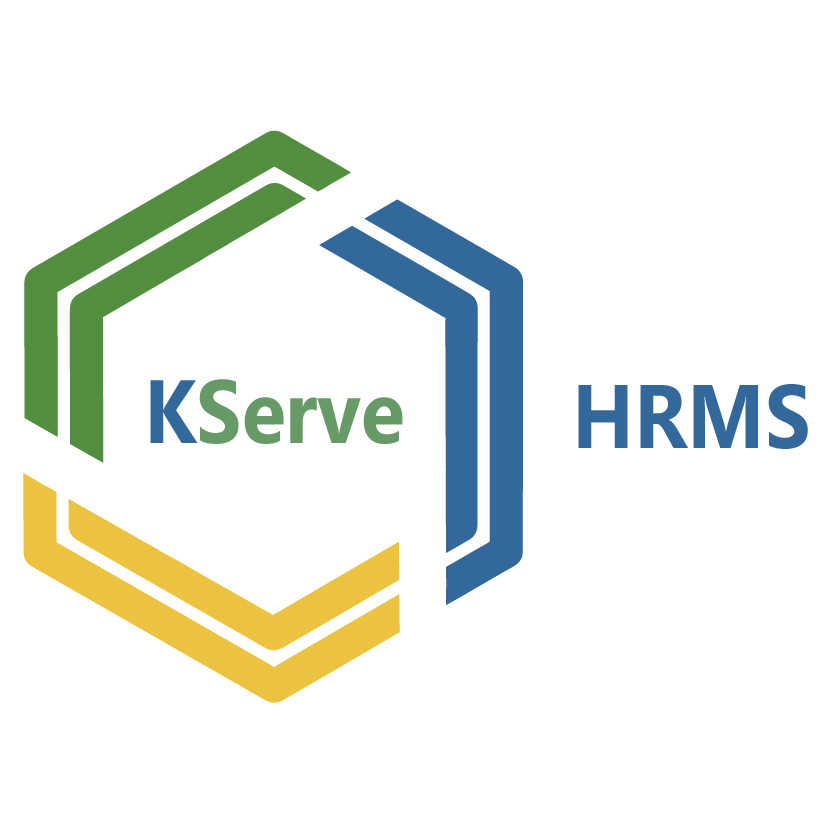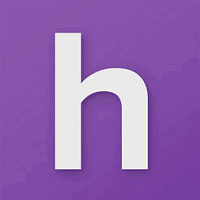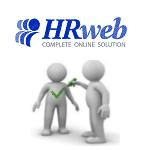Description

Croner

KServeHRMS
Comprehensive Overview: Croner vs KServeHRMS
Croner and KServeHRMS are both tools in the human resources management space, but they cater to different target markets and have varying primary functions, market presence, and unique differentiators.
a) Primary Functions and Target Markets
Croner:
- Primary Functions: Croner primarily focuses on providing HR services, consultancy, and software solutions designed to support HR management, employment law compliance, and health & safety needs. It often offers features like payroll management, employment law advice, HR consultations, and risk assessment tools.
- Target Markets: This product generally targets small to medium-sized enterprises (SMEs), especially those that require guidance and support in complying with legal and regulatory requirements in HR and health and safety.
KServeHRMS:
- Primary Functions: KServeHRMS is more of a comprehensive HR management system that offers a suite of tools for talent management, payroll processing, employee self-service, time and attendance tracking, and performance management.
- Target Markets: It targets a broader audience including medium to large businesses with complex HR needs, aiming to streamline and automate various HR processes across diverse industries.
b) Market Share and User Base
-
Croner: Given its focus on consultancy and compliance, Croner has carved out a niche market especially popular among UK businesses seeking compliance expertise. Its user base might not be as large as some global HR software providers due to its specialized focus and regional concentration.
-
KServeHRMS: As a more traditional HR management software, KServeHRMS is likely to have a larger market share in regions where it operates, especially in markets looking for holistic, integrated HR solutions. The user base is diverse, spanning multiple industries with an inclination towards companies looking for scalable and customizable HR solutions.
c) Key Differentiating Factors
-
Specialization vs. Comprehensive Features: Croner distinguishes itself through its specialization in compliance and consultancy services, making it attractive to companies needing expert guidance in employment law and health & safety. KServeHRMS is differentiated by its comprehensive HR functions catering to full-spectrum HR management needs.
-
Regional Focus: Croner has a strong presence and influence within the UK market, primarily due to its focus on UK employment laws and occupational compliance. In contrast, KServeHRMS has a broader geographical appeal with features adaptable to various international HR processes.
-
Service Model: Croner often combines consultancy services with its software offerings, providing a more personalized, service-oriented approach. KServeHRMS operates on a software-driven model that emphasizes automation and integration within existing business systems.
In essence, the choice between Croner and KServeHRMS would largely depend on a company’s specific needs—whether they require specialized compliance aid with a service-oriented approach, or a comprehensive HR software system that automates a wide range of HR tasks.
Contact Info

Year founded :
1941
Not Available
Not Available
United Kingdom
Not Available

Year founded :
2003
+91 44 4261 5064
Not Available
India
http://www.linkedin.com/company/kservehrms
Feature Similarity Breakdown: Croner, KServeHRMS
When comparing HRMS (Human Resource Management Systems) like Croner and KServeHRMS, it's essential to analyze their features, user interfaces, and unique offerings. Here’s a breakdown based on typical aspects found in HRMS solutions:
a) Core Features in Common
Most HRMS solutions, including Croner and KServeHRMS, tend to offer a set of fundamental features that are essential for managing various human resources functions:
-
Employee Database Management:
- Both systems maintain comprehensive records of employee information, including personal details, job history, and contact information.
-
Payroll Management:
- They offer modules to manage payroll processing, tax calculations, and salary disbursement.
-
Attendance and Leave Management:
- Systems keep track of employee attendance, leave balances, and automate leave approval workflows.
-
Performance Management:
- These platforms provide tools for setting performance goals, conducting appraisals, and tracking employee progress.
-
Recruitment and Onboarding:
- They help streamline recruitment processes and manage applicant data, interviews, and onboarding tasks.
-
Regulatory Compliance:
- By ensuring compliance with employment laws and regulations by updating software in line with legal standards.
-
Self-Service Portals:
- Both typically offer employee and manager self-service portals for updating personal information, downloading payslips, and managing leave requests.
b) User Interface Comparison
Croner:
- Croner's user interface tends to focus on simplicity and ease of navigation, often designed with a less cluttered layout to cater to HR professionals who need quick access to data.
- Their dashboards often emphasize clarity and can provide quick insights into key HR metrics.
KServeHRMS:
- KServeHRMS might offer a more customizable interface ideal for organizations that require tailored solutions.
- It's possible that KServeHRMS uses more advanced data visualization and analytics tools directly in their UI to assist users in making data-driven decisions.
c) Unique Features
Croner:
- Specialist HR Advice: Croner often integrates with services that provide direct access to professional HR advice and support, which can be a unique offering.
- Legal Compliance Support: Beyond typical compliance features, Croner might provide hands-on support or extra services to ensure adherence to complex regulatory requirements.
KServeHRMS:
- Advanced Reporting and Analytics: KServeHRMS may focus more on in-depth analytics tools, offering enhanced visualizations and custom reporting capabilities.
- Customization: It might offer more modular customizations tailored for industry-specific needs.
Both platforms aim to deliver comprehensive HR functionalities but target potential customers' various needs and preferences. When choosing between them, a business would need to consider these nuances and how the unique features align with its specific HR strategies and operational workflows.
Features

Compliance and Legal
Employee Benefits
Salary Insights

Talent Management
Reporting and Analytics
Employee Management
Payroll and Compensation
Learning and Development
Best Fit Use Cases: Croner, KServeHRMS
Croner
a) Best Fit Use Cases for Croner:
-
Small to Medium Enterprises (SMEs): Croner is particularly effective for small to medium-sized businesses seeking comprehensive employment relations advice, HR support, and compliance services. These businesses often lack extensive in-house HR capabilities and benefit greatly from Croner's consultancy, training, and legal support services.
-
Industries with Complex Employment Relations: Ideal for industries with elaborate employment regulations, such as healthcare, manufacturing, and education. Croner offers specialized support to help navigate complex HR landscapes, ensuring compliance and efficient HR practices.
-
Businesses Needing Tailored HR Compliance Solutions: Companies that require customized HR solutions and compliance advisory services benefit from Croner's tailored approach. This includes assistance with employee contracts, staff handbooks, and policy documentation.
-
Organizations Focused on Risk Management: For businesses where HR risks and liabilities could significantly affect operations, Croner's risk management services provide essential support in mitigating employment-related risks.
d) Catering to Different Verticals:
- Industry-Specific Compliance: Croner offers specialized services tailored to industry-specific employment laws and standards, which is crucial for sectors like healthcare or construction where regulatory frameworks are stringent.
- Flexible Plans for Various Sizes: Croner’s adaptability to different business sizes, from startups to medium enterprises, ensures that companies receive scalable services that grow with their HR needs.
KServeHRMS
b) Best Fit Use Cases for KServeHRMS:
-
Large Enterprises: KServeHRMS is well-suited for large organizations that need an integrated HR management system capable of handling vast amounts of employee data and complex HR functions, from onboarding to performance management.
-
Technology-Savvy Organizations: Ideal for businesses that prioritize technological integration and automation in their HR departments. KServeHRMS's robust features allow for seamless digital transformation of HR processes.
-
Multinational Companies: Companies with operations in multiple countries benefit from KServeHRMS’s ability to support global HR operations, offering multilingual capabilities and compliance with various regional regulations.
-
Businesses Seeking Comprehensive HR Solutions: KServeHRMS provides a holistic suite of HR tools, including payroll management, talent management, time and attendance tracking, and employee self-service portals, making it suitable for businesses seeking an all-in-one HR solution.
d) Catering to Different Verticals:
- Scalable Solutions for Diverse Sectors: KServeHRMS offers scalable options that cater to different industry verticals, such as IT, financial services, and hospitality, where efficient HR management is critical for operational success.
- Adjustable to Company Size: While it excels in larger enterprises, KServeHRMS also offers modules and functionalities that can be customized for use by smaller companies or startups looking to expand their HR capabilities.
In summary, Croner is the go-to for businesses needing personalized HR compliance and risk management solutions, while KServeHRMS is ideal for companies seeking comprehensive, technology-driven HR management systems suitable for larger scale and international operations.
Pricing

Pricing Not Available

Pricing Not Available
Metrics History
Metrics History
Comparing undefined across companies
Conclusion & Final Verdict: Croner vs KServeHRMS
To provide a conclusion and final verdict on Croner and KServeHRMS, let's examine each aspect requested:
a) Best Overall Value
Determining which product offers the best overall value depends on the specific needs and priorities of the business considering these HR solutions. Generally, value is assessed based on cost-effectiveness, features offered, usability, customer support, and integration capabilities.
-
Croner might offer better value for companies looking for robust compliance tools and a focus on employee relations and risk management, given its specialization in HR advisory and employment law.
-
KServeHRMS could be considered superior in value if the company needs a comprehensive, integrated HRMS that includes features such as payroll processing, performance management, and employee self-service tools.
Ultimately, the best overall value will align with the specific HR functions that are most critical to the business’s operations and strategic goals.
b) Pros and Cons
Croner
Pros:
- Strong focus on compliance and risk management.
- Excellent HR advisory services with support in employment law.
- User-friendly interface with straightforward navigation.
Cons:
- May lack integration capabilities with other business software.
- Could be more expensive if specialized compliance services are not a priority.
- Limited functionalities outside of compliance and advisory services.
KServeHRMS
Pros:
- Comprehensive HRMS offering with payroll, attendance, and performance management.
- Affordable for small to medium-sized enterprises.
- Scalable with growing organizations and offers a wide range of customizable features.
Cons:
- May have a steeper learning curve due to the expansive feature set.
- Potential need for advanced technical support, which could lead to additional costs.
- Some users might experience issues with integration in complex IT environments.
c) Specific Recommendations
-
For organizations prioritizing compliance and HR advisory: Croner will likely be the better choice, benefiting businesses in heavily regulated industries or those with complex HR needs requiring dedicated advisory support.
-
For businesses seeking a full-function HRMS: KServeHRMS is more suitable for companies wanting an all-in-one platform for HR functions, such as payroll, time and attendance, and employee self-service.
-
Assess Specific Needs: Businesses should conduct a needs assessment to identify which features are essential, and maybe even conduct trials or request demos from both providers to see which interface and functionality best align with their operational needs.
-
Consider Scalability and Integration: Companies expecting significant growth or those with complex systems should evaluate each system’s ability to scale and integrate with existing software to avoid issues down the line.
In conclusion, the decision between Croner and KServeHRMS should be driven by a detailed analysis of the business's specific HR requirements, budget constraints, and long-term strategic goals.
Add to compare
Add similar companies



